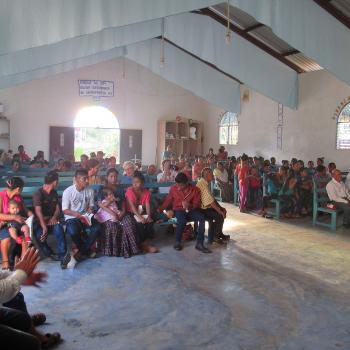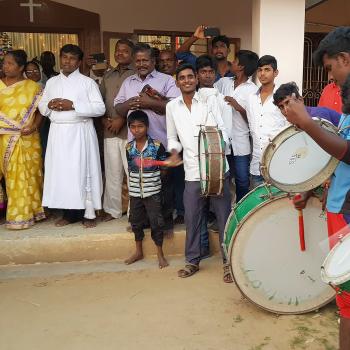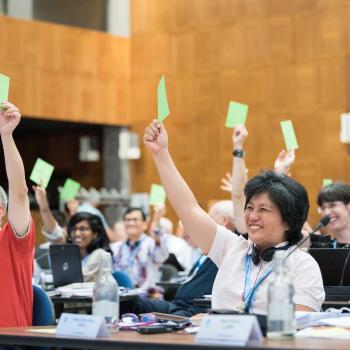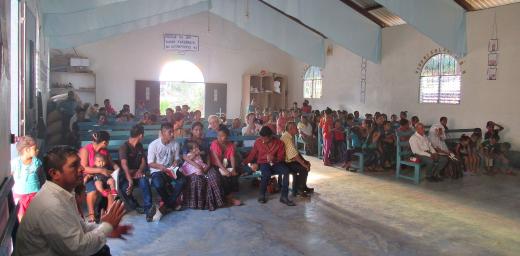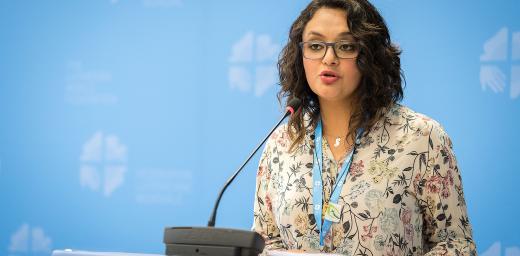New LWF member: United Evangelical Church in Cuba Lutheran Synod
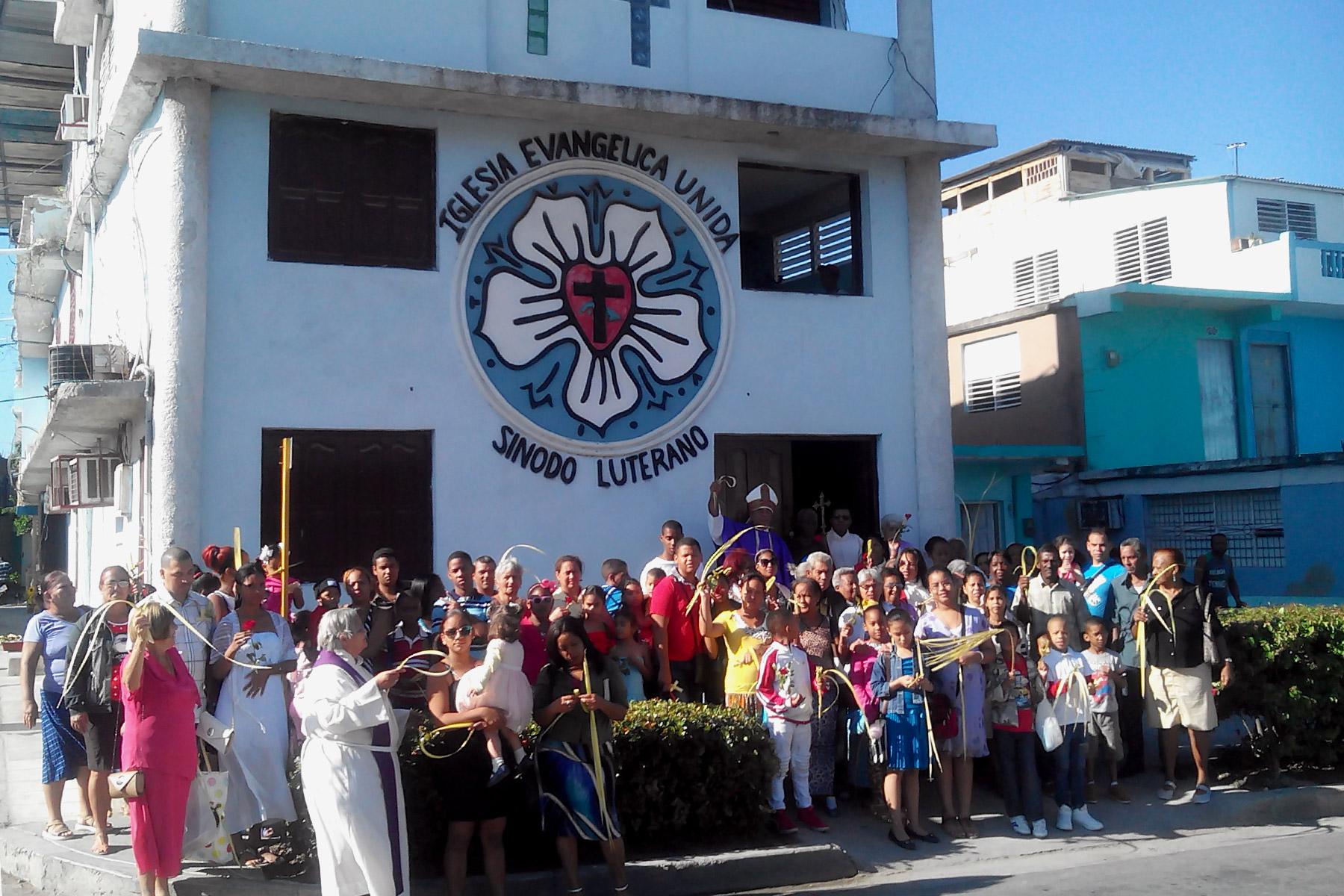
A congregation of new LWF member church the United Evangelical Church in Cuba Lutheran Synod meets in Santiago de Cuba. The church has more female ordained leaders than male. Photo: United Evangelical Church in Cuba Lutheran Synod
“Being part of the LWF allows us to give and receive in every way”
(LWI) - When the United Evangelical Church in Cuba Lutheran Synod (IEU-SL), learned it had been accepted as a member of The Lutheran World Federation (LWF), the celebrations lasted over a week.
“For IEU-SL, to join the LWF meant the certainty that we are now part of the international Lutheran community. We are no longer alone. Now we can begin to take united steps with our brothers and sisters of faith,” says Bishop Ismael Laborde Figueras.
We are no longer alone. Now we can begin to take united steps with our brothers and sisters of faith.
“Being part of the Lutheran communion allows us to give and receive in every way. We can learn from others and at the same time can offer the gifts the Holy Spirit gave us,” he says. “We can offer the experience of planting a Lutheran church in a non-European and much less German context. We can offer experience in the education of leaders in a country without a legal framework for the action of our church. Before, we were relatively alone. Now we are accompanied.”
The IEU-SL has 1,500 members in 11 congregations over seven provinces. It has more women than men in ministry as pastors and deacons, including one auxiliary bishop. Women also enjoy the same right to hold decision-making positions within the IEU-SL and the diocesan council is composed largely of women. Moreover, it is the only church in the country with a missal of Cuban music, and its productions include gospel and children’s music.
Worship, diakonia and ecumenism
The church’s main outreach and evangelization program, JOEL Cuba, brings together pastors and lay volunteers. JOEL distributes Bibles and biblical material, and runs activities that promote health and well-being. One of its music groups, JOEL Vixion, is one of the longest-running in the country, traveling through villages and churches promoting the word of God through music.
There is also a program to build churches or acquire and adapt buildings for worship, which is important for a church that started in private homes. Today the Lutheran church holds worship services and runs its programs from the Aposento Alto building in Santiago de Cuba. “We have other properties that are legally still owned by private individuals who serve the church. We are managing the transfers of these properties to the IEU-SL.”
Members of the Cuban Lutheran church represent all strata of the country’s society including marginalized people. It is a church that promotes its ecumenical vocation through dialogue, celebrations and other acts of collaboration with Protestants and Catholics.
Its laity and ordained men and women actively participate in social service work or diakonia in Cuban society, especially promoting the values of justice and equity. A program that it started in 2002 provides pastoral and diaconical assistance to vulnerable groups, especially the elderly and people living with HIV and AIDS.
Theological education
In 2000, the church opened its theological seminary, offering Bible studies and courses ranging from the basic school-leaving certificate in Christian education to a six-year diploma level. “Because we are a confessional, confessing church and we exist in a country with a high level of education, we pay special attention to the theological training process,” the bishop says. The church also works tirelessly on small, self-sustainable projects to maintain its ministry in Cuba and gradually replace external financing.
Although the church is free to organize its communities and preach the gospel without persecution or discrimination, the government does not officially permit any theological education. Another challenge is the high cost of living. Workers are paid in Cuban pesos (CUP) but goods and services are valued in the convertible national currency (CUC), which is pegged to the US dollar. With the daily income for workers being less than one US dollar per day, the contributions of church members are low.
“All this makes the ministry of the church challenging and very interesting, but we always find a way forward, with the help of God and our ingenuity,” Bishop Laborde Figueras concludes.
The LWF welcomed the IEU-SL into the Lutheran communion during the June 2018 Council meeting held in Geneva.


